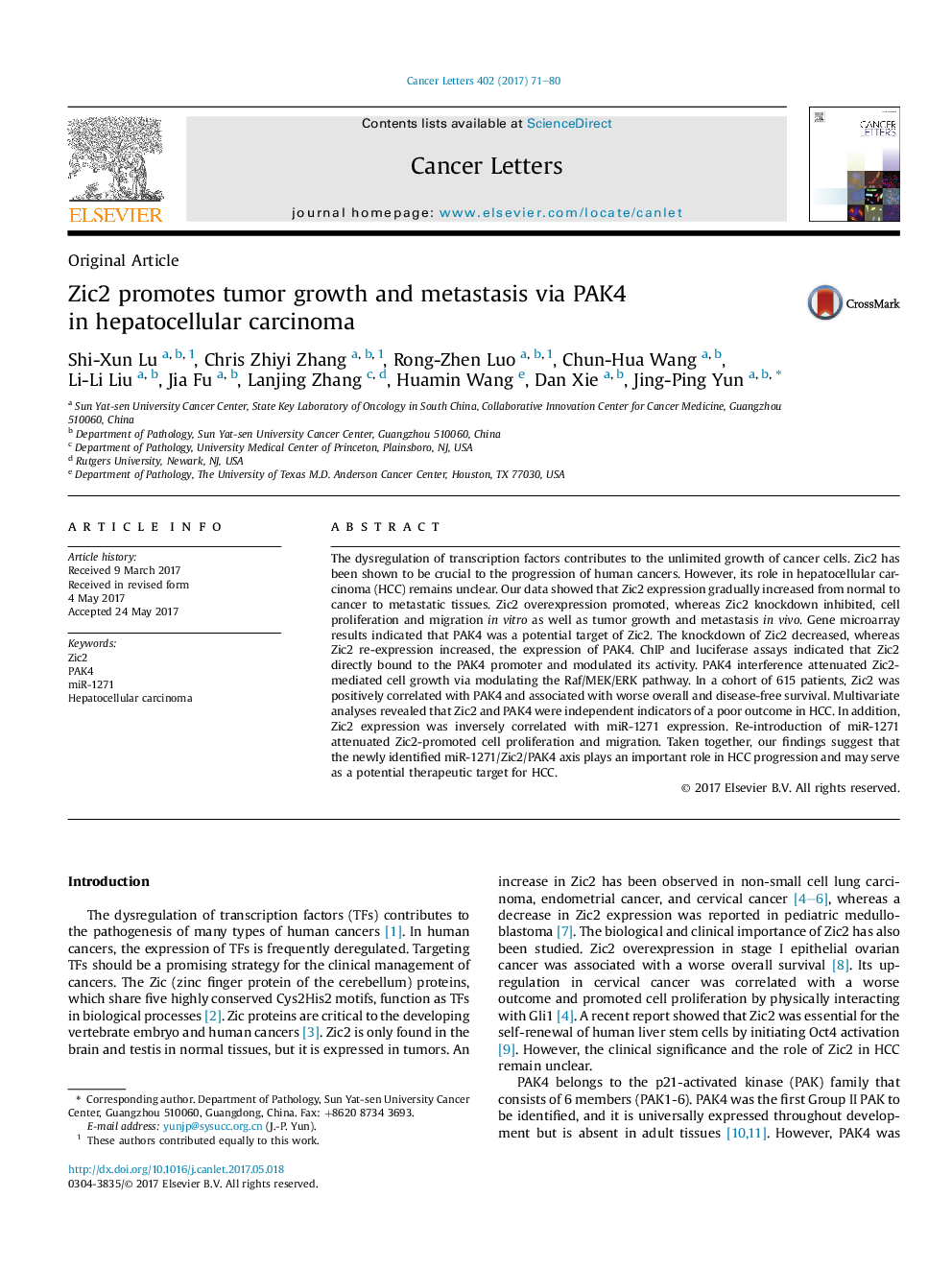| Article ID | Journal | Published Year | Pages | File Type |
|---|---|---|---|---|
| 5525220 | Cancer Letters | 2017 | 10 Pages |
â¢Zic2 expression is remarkably increased and significantly associated with poor outcomes in patients with HCC.â¢Zic2 expression is modulated by miR-1271, a microRNA with noticeable down-regulation.â¢Zic2 exerts oncogenic activities via transcriptionally up-regulating PAK4.
The dysregulation of transcription factors contributes to the unlimited growth of cancer cells. Zic2 has been shown to be crucial to the progression of human cancers. However, its role in hepatocellular carcinoma (HCC) remains unclear. Our data showed that Zic2 expression gradually increased from normal to cancer to metastatic tissues. Zic2 overexpression promoted, whereas Zic2 knockdown inhibited, cell proliferation and migration in vitro as well as tumor growth and metastasis in vivo. Gene microarray results indicated that PAK4 was a potential target of Zic2. The knockdown of Zic2 decreased, whereas Zic2 re-expression increased, the expression of PAK4. ChIP and luciferase assays indicated that Zic2 directly bound to the PAK4 promoter and modulated its activity. PAK4 interference attenuated Zic2-mediated cell growth via modulating the Raf/MEK/ERK pathway. In a cohort of 615 patients, Zic2 was positively correlated with PAK4 and associated with worse overall and disease-free survival. Multivariate analyses revealed that Zic2 and PAK4 were independent indicators of a poor outcome in HCC. In addition, Zic2 expression was inversely correlated with miR-1271 expression. Re-introduction of miR-1271 attenuated Zic2-promoted cell proliferation and migration. Taken together, our findings suggest that the newly identified miR-1271/Zic2/PAK4 axis plays an important role in HCC progression and may serve as a potential therapeutic target for HCC.
